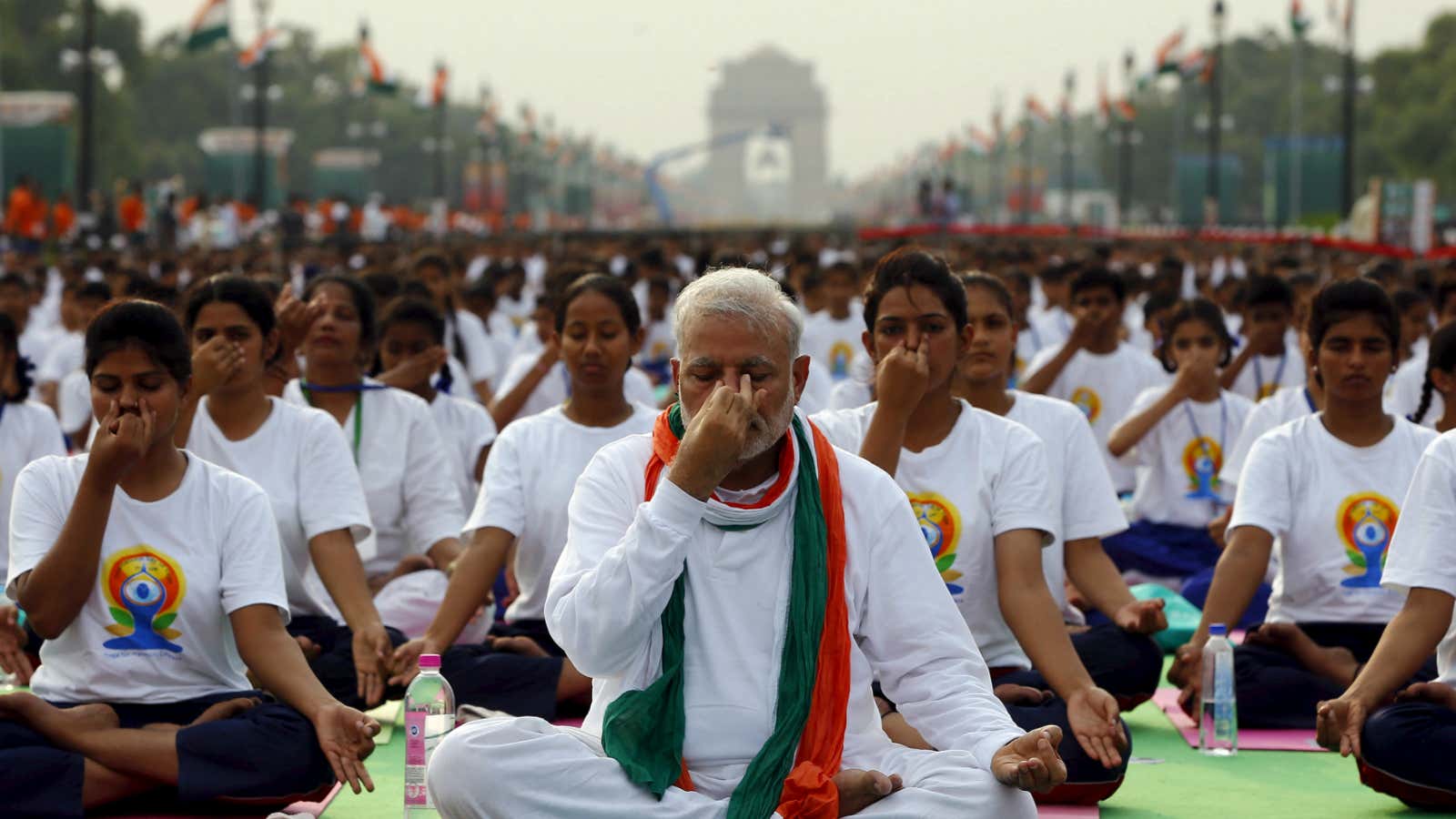The so-called acche din (good days) that prime minister Narendra Modi promised after coming into power with a resounding mandate last May aren’t here yet, and Indians are beginning to worry.
On Aug. 4, the Reserve Bank of India (RBI) released a set of forward-looking survey results, the most striking of which reveal that consumer confidence is now plateauing and that Indian households are increasingly convinced that inflation will be back to haunt them.
The RBI polled some 5,400 respondents across six cities—Bengaluru, Chennai, Hyderabad, Kolkata, Mumbai and New Delhi—to gauge consumer sentiment. And although consumer confidence is much higher than what it was a year ago, the positive sentiment about the economy is now moderating, the survey showed.
Meanwhile, another survey by the RBI showed that an overwhelming proportion of households polled expect inflation to rise.
This survey captures the inflation expectations of 4,994 urban households across 16 cities for both the coming three-month and one-year periods.
More respondents in this round of the survey said they expect food prices and the cost of services to rise, compared to the earlier survey that was conducted for the three months ending March 30.
In this round of the survey, 83.1% of the respondents said food prices will increase over the next three months, compared to 74.4% from the previous poll. Similarly, 89.7% of the respondents said the cost of services is set to increase in the next 12 months, compared to 86.9% of the responses from the last survey.
RBI governor Raghuram Rajan held key interest rates steady in the monetary policy review on Aug. 4 due to inflationary concerns. Consumer inflation in June inched higher to 5.4% from 5.01% in May.
Some of the gloom can be attributed to the fact that the Modi government hasn’t really kick-started investments and key bills, such as the land acquisition bill and the goods and services tax bill, remain in limbo. And with the parliament at a standstill, things aren’t likely to get much better soon.
